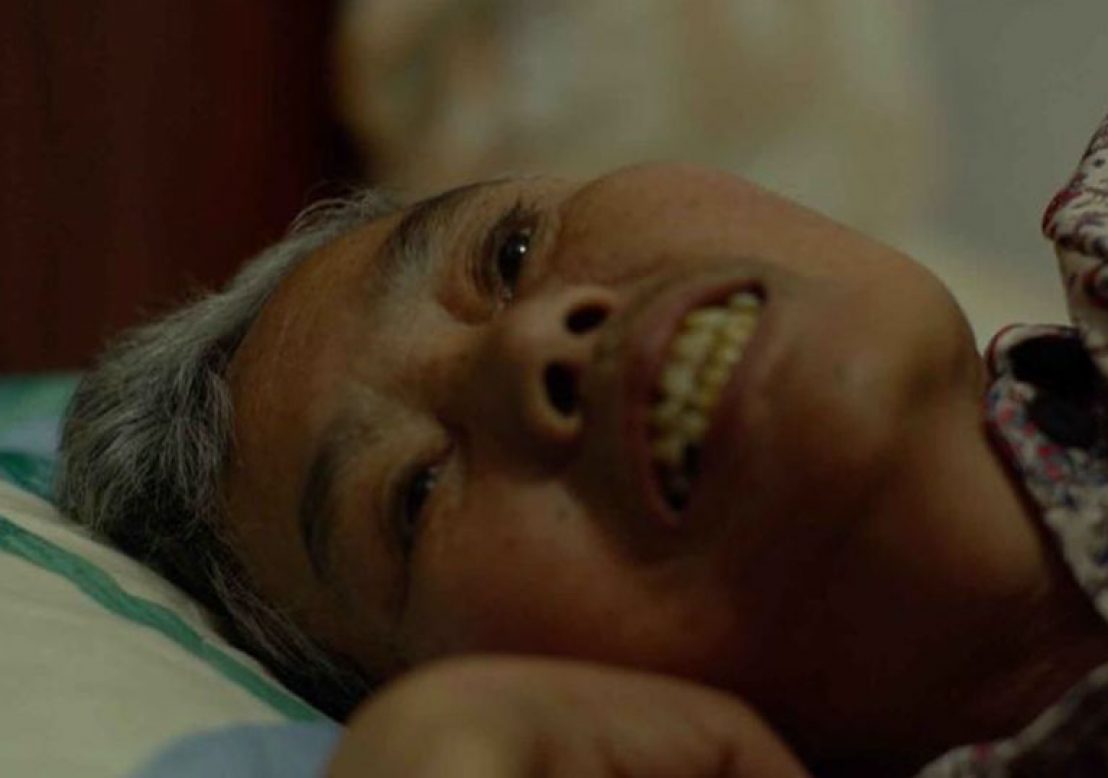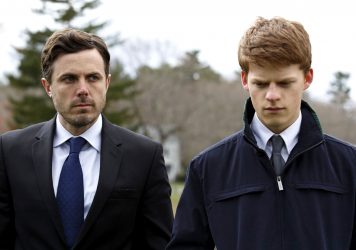
Switzerland’s Locarno Festival is an unparalleled platform for ambitious, experimental and cutting-edge cinema. Two films rose to the fore of the 2017 edition: one documentary, Wang Bing’s Mrs Fang, and one drama, Ilian Metev’s 3/4. Both are straightforward and accessible works that run at just under 90 minutes. And in each, there is more than initially meets the eye. In fact, both are more powerful for what they don’t show: the metaphysical ideas they render, and the way in which they visually represent the invisible and the abstract. They share a mutual fascination in the ultimate unknown – death.
Wang Bing is the Chinese documentarian best known for his slow, contemplative cinema which focuses on the lives and culture of modest citizens of his country. Mrs Fang (August 5 1948 to July 6 2016) is an Alzheimer’s patient Wang briefly meets in 2015. Initially upright, active and able-bodied, she becomes the subject of his film, which then documents the last 10 days of her life. Her condition quickly deteriorating, we witness Mrs Fang as she becomes immobile, confined to her deathbed. Not lucid, not able to recognise the loved ones who surround her, Mrs. Fang cannot communicate or express to us anything about her life.
Nonetheless, we remain in an excruciating proximity to the subject — the film’s clinical close-ups and stiff rigour-mortis shooting style catches Mrs Fang’s gaze, but leaves us waiting, and waiting, to watch the light leave her eyes. The situation — her constant physical presence, but simultaneous stasis — is so bleak that the film’s reduced running time seems like some act of clemency. The cumulative effect of the film’s long takes suggest to us the banality of death, a process and passage more exhausting than it is emotional. With no grand exeunt, no moment of deliverance, what remains is a filmmaker incapable of intervention, footage of an inevitable event his film can approach but not reach.
It was an intense endurance test for Locarno’s uncomfortable, impatient, 3000-strong audience, as Mrs Fang’s only moral is a morbid one: that death is not something to be continually confronted but rather something that must be eventually accepted. The burden of death, and the idea of grief being transferred from old to young, is implicitly dealt with in Ilian Metev’s 3/4. This is not an avant-garde film on the afterlife, but a melancholy drama, one that never makes clear why the members of a dysfunctional family suddenly cannot seem to adjust to one another.
Daughter Mila struggles in a piano lesson. While her music is imperfect, we are made to intuit as to why this young woman has lost momentum, lost her confidence. What off-screen interruption or ellipsis has caused this anxiety? The film follows Mila (Mila Mikhova), her hyperactive younger brother Niki (Niki Mashalov) and stoic father Todor (Todor Velchev) in their last summer together before Mila moves from their home in Bulgaria to a German university. It also follows a meticulous narrative schema — a careful structure that organises its a completely naturalistic style around entirely improvised film.
We join each of our three characters in individual scenes (Niki with friends, Mila with her tutor, Todor with his students) before we subsequently see them all together. Throughout, and from repeated angles, there is always empty space in the film’s mise en scène, one quarter of this family is absent – felt but never seen. With a void in the left and right of the frame, the family dinner table only appears to seat three.
3/4 is an autobiographical film for director Metev, director of the acclaimed documentary, Sofia’s Last Ambulance (a nonfiction counterpart to Cristi Puiu’s 2005 drama, The Death of Mr Lazarescu). With this tender study of a fragmented family, he impressively demonstrates an awareness of the mechanics of fiction: a small clutch of characters in all potential combinations and the consequential ironies these pairings brings up.
It’s difficult to make a film look this easy. Something in this family has broken, but 3/4 favours impeccable performances (from non-professional actors) and note-perfect dialogue in lieu of any exposition or dramatisation. Taken together, each on either edge of the great divide, 3/4 and Mrs. Fang are inscrutable portraits of how death exists among the living.
Wang Bing’s Bitter Money (2016) screens at Open City Documentary Festival on 9 September.Ilian Metev’s Sofia’s Last Ambulance is available through Second Run DVD.
Published 17 Aug 2017

The great Jean-Pierre Leaud is at his comi-tragic best in this humanist portrait of a dying monarch.

By Anton Bitel
Jörg Buttgereit’s necrophilia-themed 1991 horror Nekromantik 2 is now out on Blu-ray/DVD.

A Massachusetts native offers a candidly personal take on Manchester by the Sea.